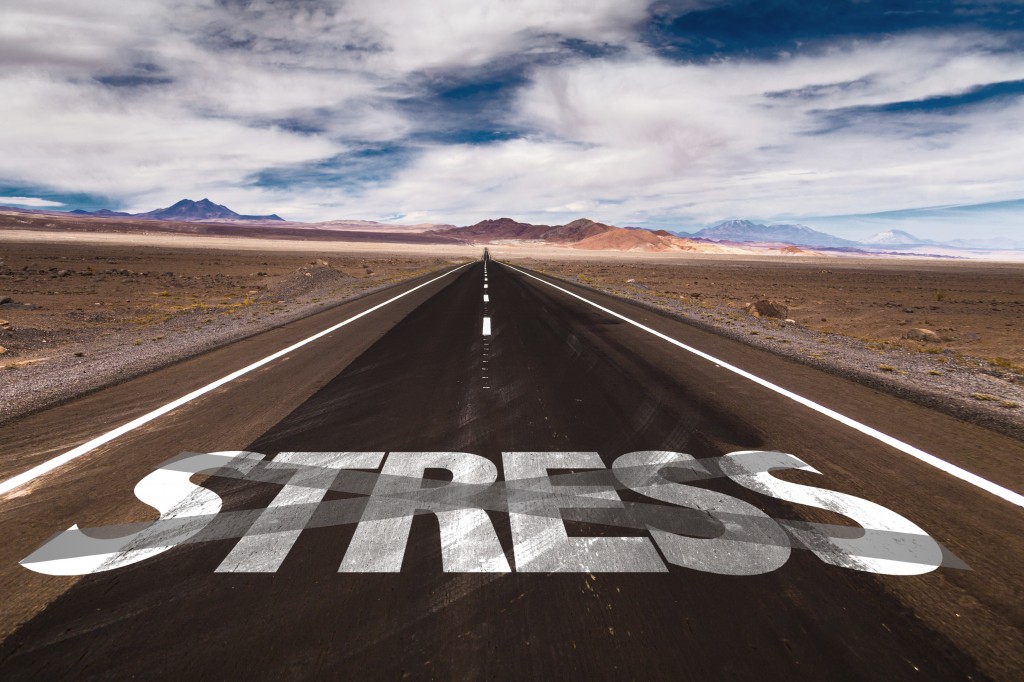- Make It Yourself Lavender Heart-Shaped Bath Bombs!
- 20 Things You Never Knew About “Down There”
- 12 Best Foods For Those Suffering From Arthritis Pain
- 12 Personal Hygiene Mistakes Almost Everyone Makes (Mom Never Told You About #4!)
- 15 Medicinal Plants And Herbs From The Cherokee People
- 12 Mind-Blowing Benefits Of Drinking Coconut Water During Pregnancy
- 12 Outstanding Winter Foods That Won’t Fatten You Up Like A Christmas Turkey
Tips For A Quick 2-Minute Stress Relief
When you only have 2 minutes to calm down!
When we were babies in times of stress, many of us were given pacifiers to calm us down. Or maybe some of us just sucked our thumbs for relief. Either way – most of the time it worked like a charm.
Today, all grown-up, you probably resort to other methods to make yourself feel better, such as -let’s be honest – a couple of glasses of wine, some of our top favourite food, and maybe a litre of your favourite ice cream. But those are fixes that don’t actually fix anything.
Extensive research has uncovered some of the fastest ways to reduce tension, and actually help to change your mindset for the better. The studies reveal that there are easy ways to lift your spirits and lower stress, as well as instil some positive attitudes into your brain and body.
The age of anxiety
We are indeed living in an age of anxiety, as we never have before! Stress, next to heart disease, is now one of the biggest killers worldwide.
It is not possible to completely eliminate stress from your life, but learning to handle stressful situations, and how you react to them, will go a long way to help you keep calm, should something stressful suddenly pop up.
Stress triggers the release of the hormone cortisol, which if in excess in the body, can over time damage your brain, cardiovascular and immune systems.
Here are some tips to help you calm down quickly should you experience a sudden stress attack that robs you of your focus.
- Studies have shown that deep breathing is critical to feeling peaceful. If you are unexpectedly hit by stress and need to calm down quickly start by taking 3 deep breaths. Breathe in deeply through the nose and exhale slowly through pursed lips. This should immediately bring a feeling of calmness, but continue the deep breathing for at least 2 minutes.
- Smiling also soothes the nerves even if you are just going through the motions.
- When stress makes you unfocused have a strong cup of coffee. Caffeine has stimulating properties that can catapult you right back into focus in less than a minute.
- Drop your jaw. Studies have shown that by relaxing your tongue and jaw you actually send a message to your brain to turn off the cortisol. You can loosen up your jaw by letting your tongue go limp in your mouth, and very slightly open your mouth.
- Commit to what you are doing, and don’t let any negative or upsetting thoughts distract you. It is called living in the moment and is a great stress-reducer.
- A sudden, disturbing thought might throw you into panic mode, but just because this thought is in your mind does not make it true. Question yourself whether or not the thought can be true. If you are not absolutely certain that it is true, just let the thought go – and the panic will go with it. If you feel negative thoughts coming on, take the following steps for a mini-relaxation:
- Stop and purposefully call a mental break.
- Take a few deep breaths to help release building-up tension.
- Examine the thoughts. Make sure that you are not jumping to conclusions which may not be true. Ask yourself whether it is helping you to think in such a negative way.
- Take a break from whatever you are doing, sit down for a few minutes and allow your entire body to relax. Let your shoulders drop, your arms fall to your sides, and loosen up your fingers.
Bear in mind that one of the best things you can do to help yourself calm down is to concentrate on breathing deeply in through the nose and slowly out through pursed lips. Do this whenever you begin to feel stressed.
Continue to Page 2
Some common triggers that may set off stressful feelings
Different people get stressed out by many different things. Here is a list of the most common triggers that may provoke you into stress, and how to deal with them.
- If you are often angry and irritated by thoughts, you may have an incorrect perception, or misunderstanding of a situation or problem. You may also be emotional, and jumping to conclusions which do not exist. Take time to consider your thoughts, breathe, and reflect on what the truth of the matter might be.
- If you are unsure of your ability to do a certain task, especially at work, don’t go into a panic and try to cope on your own. Ask a colleague for help, or consult your boss for advice.
- If you suddenly feel oppressively tense, take a hot bath, practise some mini-relaxation techniques, and get some exercise. This will help to reduce tension.
- If you have a pessimistic frame of mind, teach yourself to be optimistic about what you can achieve if you put your mind to it. Worry and pessimism about life will not help you to live even one day longer, but instead has the potential to take away joy, good health, and make sure you that live under a dark cloud. Living in the moment and a positive mindset can help to lift you from the pit of pessimism.
- If you are often late for work or appointments, and the thought of it stresses you out, the key to destressing is learning to manage your time better. If you allow yourself an extra 15 minutes travelling time, increase it by 10 minutes, to get to your destination on time. Should you be trapped in a traffic snarl-up make a couple of calls to explain why you may be late. Just doing something positive about something which is out of your control, will help you to stay calm, instead of seething with frustration.
READ ALSO: The Best Tips For Beating Stress And Boosting Happiness Infographic
It may sound a bit whacky, but make a habit of talking to yourself in an optimistic way if you feel panic coming on. It can help you to put things in perspective, and identify distorted thoughts.
A positive mindset will make a major difference to the way you cope with stress.
References:


































